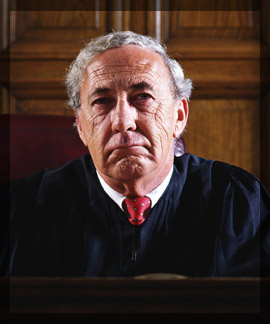Aviso de archivo
Esta es una página de archivo que ya no se actualiza. Puede contener información desactualizada y es posible que los enlaces ya no funcionen como se pretendía originalmente.
Home | Glossary | Resources | Help | Contact Us | Course Map
Absent a specific admissibility statute, the admissibility of scientific evidence is governed by either the Frye (see next page) (Frye v. United States, 293 F. 1013; 54 App. D.C. 46; 34 A.L.R.145 (D.C. 1923) or Daubert (see page after next) (Daubert v. Merrill Dow Pharmaceutical Inc., 509 U.S. 579; 113 S. Ct. 2786; 125 L. Ed. 2d 469 (1993)) standards. It is the role of the judge to act as the "gatekeeper" and apply the appropriate standard used in their jurisdiction. In all cases, prosecutors should be thoroughly familiar with the controlling standards applied by the court.
Additional Online Courses
- What Every First Responding Officer Should Know About DNA Evidence
- Collecting DNA Evidence at Property Crime Scenes
- DNA – A Prosecutor’s Practice Notebook
- Crime Scene and DNA Basics
- Laboratory Safety Programs
- DNA Amplification
- Population Genetics and Statistics
- Non-STR DNA Markers: SNPs, Y-STRs, LCN and mtDNA
- Firearms Examiner Training
- Forensic DNA Education for Law Enforcement Decisionmakers
- What Every Investigator and Evidence Technician Should Know About DNA Evidence
- Principles of Forensic DNA for Officers of the Court
- Law 101: Legal Guide for the Forensic Expert
- Laboratory Orientation and Testing of Body Fluids and Tissues
- DNA Extraction and Quantitation
- STR Data Analysis and Interpretation
- Communication Skills, Report Writing, and Courtroom Testimony
- Español for Law Enforcement
- Amplified DNA Product Separation for Forensic Analysts


